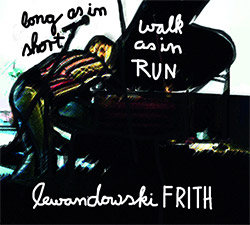
Extended and captivating improvisations using complex and extended techniques from the duo of prepared pianist Annie Lewandowski (London Improvisers Orchestra, Powerdove, Xiu Xiu) and guitarist Fred Frith (Henry Cow, Skeleton Crew, &c &c) in a thoroughly modern improvised conversation, here reissued with 11 minutes of previously unreleased material.
In Stock
Quantity in Basket: None
Log In to use our Wish List
Shipping Weight: 3.00 units
EU & UK Customers:
Discogs.com can handle your VAT payments
So please order through Discogs
Sample The Album:
Fred Frith-electric guitar, preparations
Annie Lewandowski-piano, preparations
Click an artist name above to see in-stock items for that artist.
UPC: 5052571093825
Label: Klanggalerie
Catalog ID: GG385
Squidco Product Code: 32113
Format: CD
Condition: New
Released: 2022
Country: Germany
Packaging: Digipack
Recorded at Mills College, in Oakland, California, on May 4th, 2010, by Barton McGuire. Track 9 recorded at Berkley Arts Festival, On October 10th, 2014. Originally released in 2011 as a compact disc on the Denmark label Ninth World Music with catalog code NWM 047 CD.
"Fred Frith is an English multi-instrumentalist, composer, and improvisor. Probably best known for his guitar work, Frith first came to attention as one of the founding members of the English avant-rock group Henry Cow. He was also a member of the groups Art Bears, Massacre, and Skeleton Crew. He has collaborated with a number of prominent musicians, including Robert Wyatt, Derek Bailey, The Residents, John Zorn, Brian Eno, Mike Patton, Lars Hollmer, Bill Laswell, Iva Bittova and Jad Fair.
Annie Lewandowski is a composer and performer who works in song and improvisation. As an improviser on piano, accordion, and electronics, she has performed and recorded with musicians like Fred Frith, the London Improvisers Orchestra or Caroline Kraabel. As a singer, guitarist, and keyboardist, she has recorded with bands and ensembles including Emma Zunz, Xiu Xiu, The Curtains, Former Ghosts, and Yarn/Wire. Her own band Powerdove has released ten recordings.
Long As In Short, Walk As In Run was originally released in 2011 on Danish Ninth World Music label and has been out of print for years. It's a piano and guitar album. For this re-edition we have added a previously unreleased 11 minute bonus track."-Klanggalerie
"
"Fred Moten once wrote, "Consider the history of what has been done to strings in America: pulled, broken, frayed, bent, yanked, plucked, twisted, fingered, thumped, thumbed, rubbed, burned, fuzzed, tuned, plugged, tied, bitten, bottle-necked, box-car'd, mail-ordered, masturbated, remastered-they've been suspended between leeway and seizure all for an open set of sounds." Moten's list looks paltry compared with the bestiary of sounds offered by Annie Lewandowski, Fred Frith, and the 251 strings they scratch, strangle, and whack in these eight improvisations.
A quick glance through the track titles on this album suggests a certain aviary theme, but my listening takes me instead to thoughts about the sea. The music evokes the soundscape of maritime labor-not the labor of humans, but that of the ships that carry their junk food, staplers, and tin gift boxes across the globe. Rusted, massive ships creeping into the harbor in the early morning, unseen but certainly not unheard.
Just a few weeks before this recording was made in Oakland, California, three Super-Post Panamax container cranes from Shanghai, perched atop a special ship that could lower itself in the water, slipped a few feet under the Bay Bridge on their way to the Port of Oakland. The delivery was made at low tide in order to avoid a nasty scrape on the bottom of the bridge. But what if the captain lacked the patience to wait? What would that slow collision sound like? What if there had been a contact microphone attached to each of these cranes' 253 feet? Would we hear grunts and screeches like the ones on Long as in Short, Walk as in Run?
Although Frith's array of effects and techniques is, as always, simply dazzling, I once thought the individual sounds of this duo were utterly anonymous, escaping any attempt to assign them to one or the other player. I now hear the differences clearly. Frith extends lines of thought, pushes his materials into new configurations, while Lewandowski always works as the slow anchor. Shifting intensities into long moments, she has the uncanny talent of transforming even the most quicksilver exchanges into patient, careful murmurs. In some sense, the relocation of Lewandowski's activities into the inside of her piano was neces- sitated by a bad accident that left one hand scarred. The duets recorded here are therefore not only the sonic record of a student learning to follow (and also to direct) her teacher, but also a pianist discovering a new choreography of the instrument, turned inside out. The constantly shifting-but always vast-dimensions of this encounter and this discovery are inflected by unex- pected motives that leaven the proceedings considerably: curiosity, tenderness, mischief."-Benjamin Piekut
Artist Biographies
• Show Bio for Fred Frith "Though the point of reference for many remains the iconic band Henry Cow, which he co-founded in 1968 and which broke up more than 30 years ago, Fred Frith has never really stood still for an instant. In bands such as Art Bears, Massacre, Skeleton Crew, Keep the Dog, Tense Serenity, the Fred Frith Guitar Quartet, Eye to Ear, and most recently Cosa Brava, he has always held true to his roots in rock and folk music, while exploring influences that range from the literary works of Eduardo Galeano to the art installations of Cornelia Parker. The release of the seminal Guitar Solos in 1974 enabled him to simultaneously carve out a place for himself in the international improvised music scene, not only as an acclaimed solo performer but in the company of artists as diverse as Han Bennink, Chris Cutler, Jean-Pierre Drouet, Evelyn Glennie, Ikue Mori, Louis Sclavis, Stevie Wishart, Wu Fei, Camel Zekri, John Zorn, and scores of others. He has also developed a personal compositional language in works written for Arditti Quartet, Asko Ensemble, Bang on a Can All-Stars, Ensemble Modern, Concerto Köln, and ROVA Sax Quartet, for example. Fred has been active as a composer for dance since the early 1980s, working with choreographers Bebe Miller, François Verret, and especially long-time collaborator and friend Amanda Miller, with whom he has created a compelling body of work over the last twenty years. His film soundtracks (for award-winning films like Thomas Riedelsheimer's Rivers and Tides and Touch the Sound, Peter Mettler's Gambling, Gods, and LSD, and Deborah Kaufman and Alan Snitow's Thirst, to name a few) won him a lifetime achievement award from Prague's "Music on Film, Film on Music" Festival (MOFFOM) in 2007. The following year he received Italy's Demetrio Stratos Prize (previously given to Diamanda Galas and Meredith Monk) for his life's work in experimental music, and in 2010 was awarded an honorary doctorate from the University of Huddersfield in his home county of Yorkshire. Fred currently teaches in the Music Department at Mills College in Oakland, California (renowned for over fifty years as the epicenter of the American experimental tradition), and in the Musik Akademie in Basel, Switzerland." ^ Hide Bio for Fred Frith • Show Bio for Annie Lewandowski "Annie Lewandowski is a composer/performer who works in song and improvisation. As an improviser on piano, accordion, and electronics, she has performed/recorded with musicians including Fred Frith, the London Improvisers Orchestra, Caroline Kraabel, Theresa Wong, Tim Feeney, CAGE, Sarah Hennies, Spinneret.s, and Doublends Vert. As a singer, guitarist, and keyboardist, she has recorded with bands and ensembles including Emma Zunz, Xiu Xiu, The Curtains, Former Ghosts, and Yarn/Wire. Her band Powerdove has released nine recordings, most recently "War Shapes" (Murailles Music, 2017) and "Bitter Banquet" (fo'c'sle records, 2018). She premiered her Euripidean multimedia song cycle "Bitter Banquet" with baroque keyboardist David Yearsley at the Sustaining the Antique Festival of Classics at Cornell University in October 2016. Annie has performed at festivals and venues across the United States and Europe, including the Casa da Música (Porto, Portugal), the Hippodrome (London), Musica Nelle Valli (San Martino Spino, Italy), the Great American Music Hall (San Francisco), the Frieze Arts Fair (London), Avalon (Los Angeles), and REDCAT (Los Angeles). She is a 2014 Civitella Ranieri Foundation Fellow, and has been awarded grants from the Cornell Council for the Arts and the Atkinson Center for Sustainability for her work on humpback whale song with bioacoustics researcher Katy Payne and the Hawai'i Marine Mammal Consortium. In 2019, she contributed to the creation of Pattern Radio, Google Creative Lab's webtool for teaching AI to recognize patterns in humpback whale song. Annie received her Master of Fine Arts in Music Performance and Literature with a Specialization in Improvisation from Mills College. At Mills, she was awarded the Flora Boyd Piano Performance prize for her work on extended techniques for the piano. She is currently a Senior Lecturer in Music at Cornell University." ^ Hide Bio for Annie Lewandowski
7/9/2025
Have a better biography or biography source? Please Contact Us so that we can update this biography.
7/9/2025
Have a better biography or biography source? Please Contact Us so that we can update this biography.
Track Listing:
1. Night Owls 11:31
2. Standsee Marble 2:41
3. Ridgesia 4:32
4. My Winter Condition 3:21
5. Stared At The Bird Statue And Tried To Think 5:48
6. Sympathy Twigs 7:33
7. Dockandoilish 4:38
8. Ice Canvas 1:53
9. The Tell 11:10
Improvised Music
Free Improvisation
Frith, Fred
Guitarists, &c.
Piano & Keyboards
Duo Recordings
Instruments with Preparations
Jazz Reissues
New in Improvised Music
Staff Picks & Recommended Items
Search for other titles on the label:
Klanggalerie.


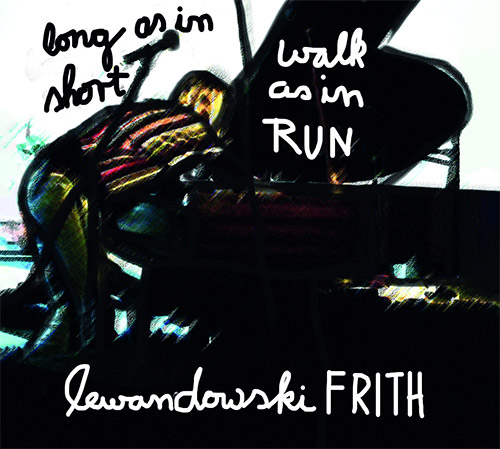
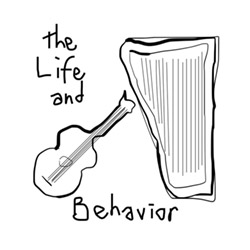




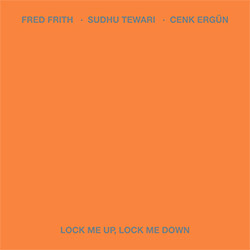

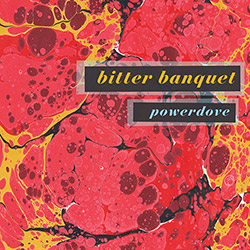




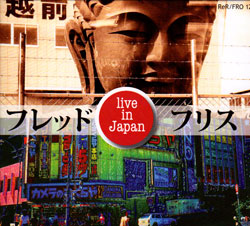
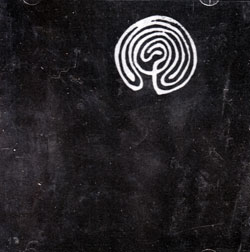
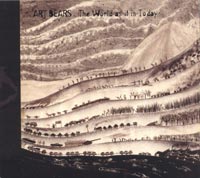
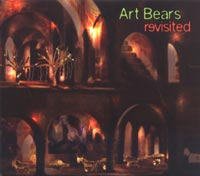
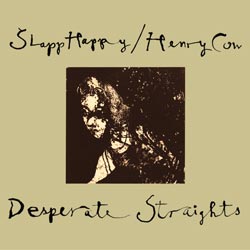
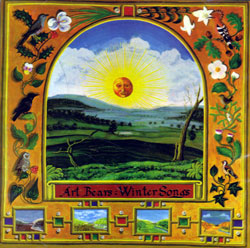
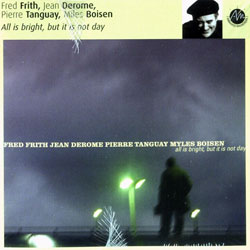
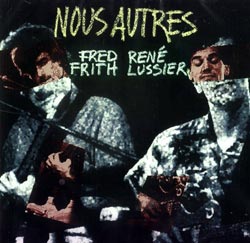
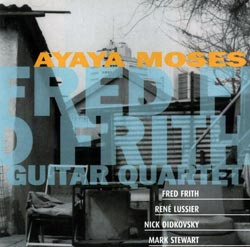
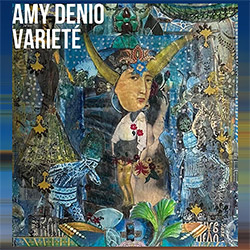
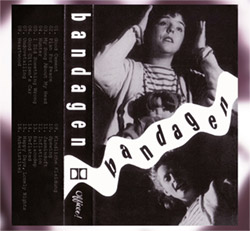
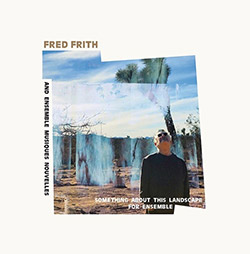
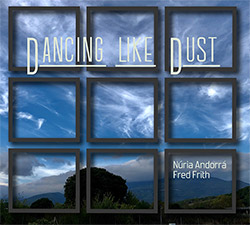





![BlueRing Improvisers: Materia [2 CDs]](https://www.teuthida.com/productImages/misc4/36513.jpg)








![Wheelhouse (Rempis / Adasiewicz / McBride): House And Home [VINYL]](https://www.teuthida.com/productImages/misc4/36462.jpg)
![+DOG+: The Light Of Our Lives [2 CDs]](https://www.teuthida.com/productImages/misc4/36009.jpg)


![Parker, Evan / Jean-Marc Foussat: Insolence [VINYL]](https://www.teuthida.com/productImages/misc4/36398.jpg)










![Deupree, Jerome / Sylvie Courvoisier / Lester St. Louis / Joe Morris: Canyon [2 CDs]](https://www.teuthida.com/productImages/misc4/36404.jpg)



![Eventless Plot | Haarvol: The Subliminal Paths [CASSETTE + DOWNLOAD]](https://www.teuthida.com/productImages/misc4/36232.jpg)










![Eventless Plot | Francesco Covarino: Methexis [CASSETTE + DOWNLOAD]](https://www.teuthida.com/productImages/misc4/36231.jpg)



![Das B (Mazen Kerbaj / Mike Majkowski / Magda Mayas / Tony Buck): Love [VINYL]](https://www.teuthida.com/productImages/misc4/36329.jpg)


![Eternities: Rides Again [CASSETTE]](https://www.teuthida.com/productImages/misc4/36247.jpg)
![Lopez, Francisco: Untitled (2021-2022) [2 CDs]](https://www.teuthida.com/productImages/misc4/36438.jpg)






![Money : Money 2 [2 CDs]](https://www.teuthida.com/productImages/misc4/35894.jpg)




![Klinga, Erik: Elusive Shimmer [VINYL]](https://www.teuthida.com/productImages/misc4/36258.jpg)
![CHANGES TO blind (Phil Zampino): Volume 9 - I Wave on a Fine Vile Mist [CD + DOWNLOAD]](https://www.teuthida.com/productImages/misc4/36061.jpg)

![Wallmart / Rubbish: Asset Protection [split CD]](https://www.teuthida.com/productImages/misc4/35900.jpg)


![+Dog+: The Family Music Book Vol. 5 [2 CDs]](https://www.teuthida.com/productImages/misc4/35897.jpg)
![Kuvveti, Deli : Kuslar Soyledi [CASSETTE w/ DOWNLOAD]](https://www.teuthida.com/productImages/misc4/36107.jpg)

![Brown, Dan / Dan Reynolds: Live At The Grange Hall [unauthorized][CASSETTE]](https://www.teuthida.com/productImages/misc4/36245.jpg)








![Palestine, Charlemagne / Seppe Gebruers: Beyondddddd The Notessssss [VINYL]](https://www.teuthida.com/productImages/misc4/36206.jpg)
![Palestine, Charlemagne / Seppe Gebruers: Beyondddddd The Notessssss [NEON GREEN VINYL]](https://www.teuthida.com/productImages/misc4/36207.jpg)

![Laubrock, Ingrid: Purposing The Air [2 CDs]](https://www.teuthida.com/productImages/misc4/35639.jpg)

![Yoko, Ono / The Great Learning Orchestra: Selected Recordings From Grapefruit [2 CDs]](https://www.teuthida.com/productImages/misc4/35841.jpg)









![Zorn, John / JACK Quartet: The Complete String Quartets [2 CDs]](https://www.teuthida.com/productImages/misc4/35609.jpg)

![Lonsdale, Eden: Dawnings [2 CDs]](https://www.teuthida.com/productImages/misc4/35480.jpg)



![Sorry For Laughing (G. Whitlow / M. Bates / Dave-Id / E. Ka-Spel): Rain Flowers [2 CDS]](https://www.teuthida.com/productImages/misc4/35985.jpg)

![Rolando, Tommaso / Andy Moor : Biscotti [CASSETTE w/ DOWNLOADS]](https://www.teuthida.com/productImages/misc4/36106.jpg)


![Electric Bird Noise / Derek Roddy: 8-10-22 [CD EP]](https://www.teuthida.com/productImages/misc4/35970.jpg)








![Elephant9 : Mythical River [VINYL]](https://www.teuthida.com/productImages/misc4/34624.jpg)


![Elephant9 with Terje Rypdal: Catching Fire [VINYL 2 LPs]](https://www.teuthida.com/productImages/misc4/35355.jpg)
![Deerlady (Obomsawin, Mali / Magdalena Abrego): Greatest Hits [VINYL]](https://www.teuthida.com/productImages/misc4/34876.jpg)







![Staiano, Moe: Away Towards the Light [VINYL + DOWNLOAD]](https://www.teuthida.com/productImages/misc4/35037.jpg)
![Coley, Byron: Dating Tips for Touring Bands [VINYL]](https://www.teuthida.com/productImages/misc4/17906.jpg)

![Lost Kisses: My Life is Sad & Funny [DVD]](https://www.teuthida.com/productImages/misc4/lostKissesDVD.jpg)